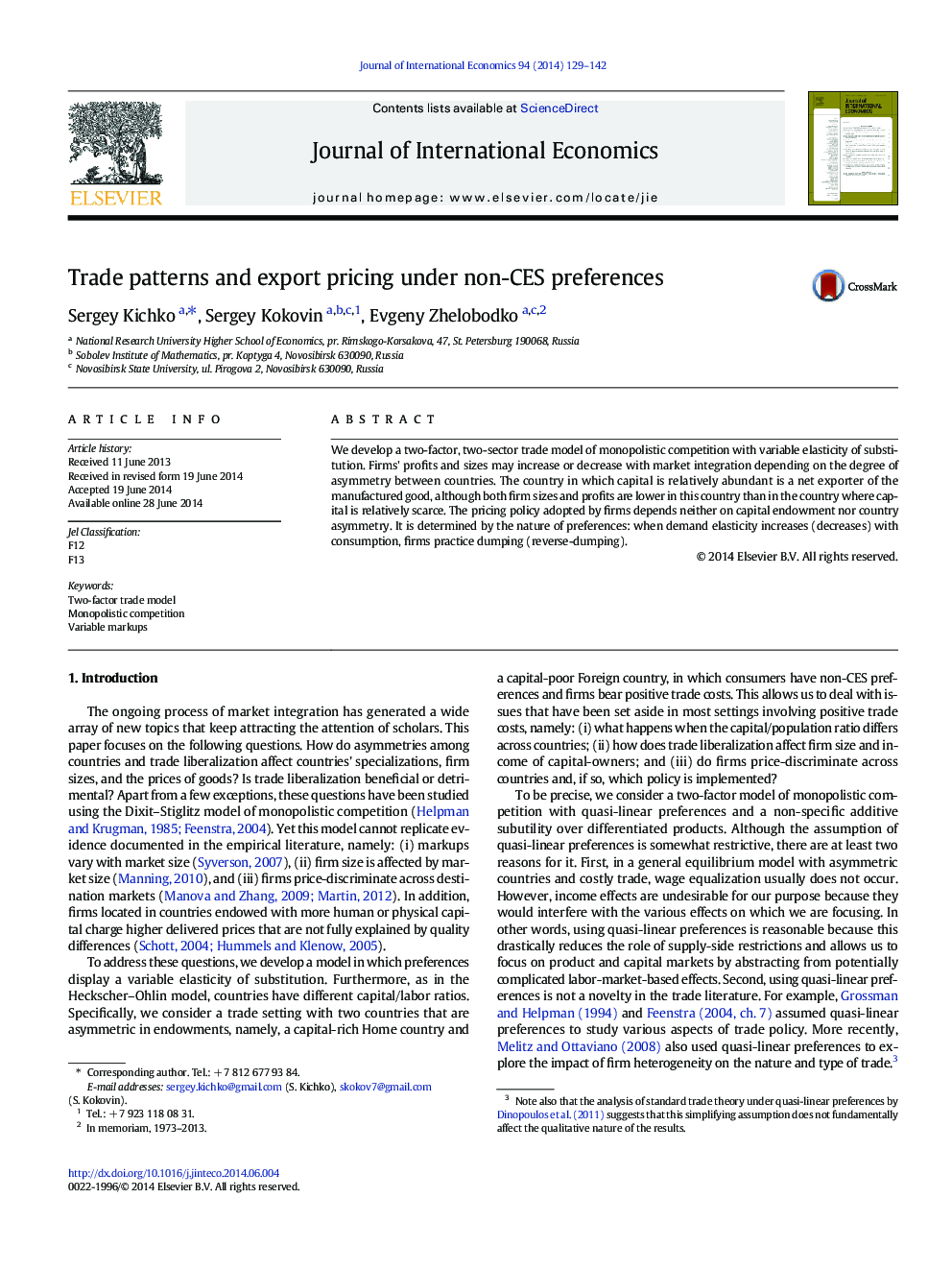| Article ID | Journal | Published Year | Pages | File Type |
|---|---|---|---|---|
| 962584 | Journal of International Economics | 2014 | 14 Pages |
Abstract
We develop a two-factor, two-sector trade model of monopolistic competition with variable elasticity of substitution. Firms' profits and sizes may increase or decrease with market integration depending on the degree of asymmetry between countries. The country in which capital is relatively abundant is a net exporter of the manufactured good, although both firm sizes and profits are lower in this country than in the country where capital is relatively scarce. The pricing policy adopted by firms depends neither on capital endowment nor country asymmetry. It is determined by the nature of preferences: when demand elasticity increases (decreases) with consumption, firms practice dumping (reverse-dumping).
Related Topics
Social Sciences and Humanities
Economics, Econometrics and Finance
Economics and Econometrics
Authors
Sergey Kichko, Sergey Kokovin, Evgeny Zhelobodko,
